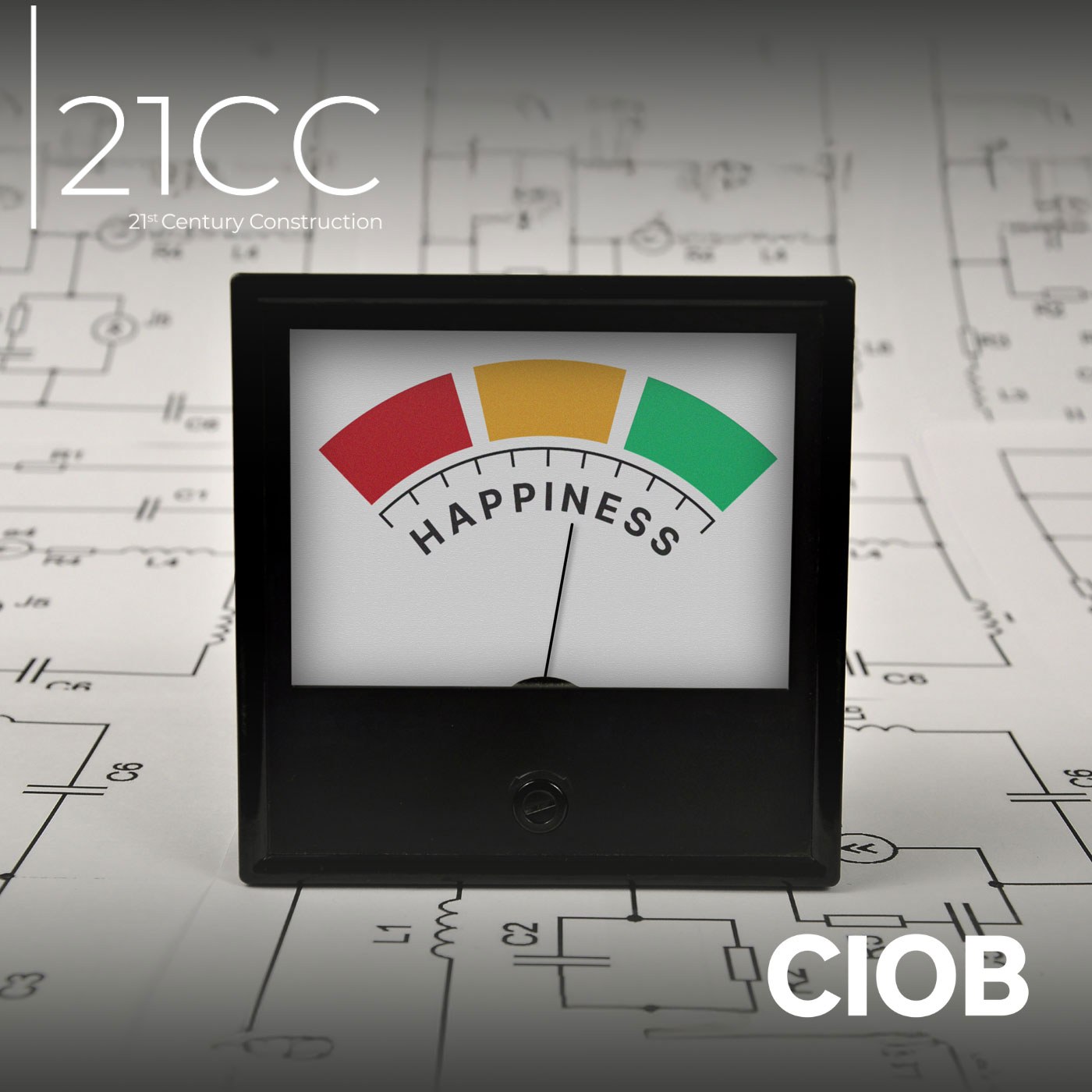Colleagues, not salary, matter more in first industry happiness survey

Colleagues are likely to affect your happiness at work more than salary and benefits, the first Construction Happiness Barometer survey reveals.
Nearly 300 construction professionals completed the survey in the last two weeks of November.
It probed happiness levels in construction, the causes of happiness or unhappiness, and attitudes about the topic.
Register for free or sign in to continue reading
This is not a paywall. Registration allows us to enhance your experience across Construction Management and ensure we deliver you quality editorial content.
Registering also means you can manage your own CPDs, comments, newsletter sign-ups and privacy settings.
The people you work with emerged as the most prominent source of happiness at work for 53% of respondents, followed by the satisfaction of delivering a project (49.8%).
Salary and benefits was ranked third (35.2%).
Older construction professionals are twice as likely to say they’re happy than younger ones, the survey showed.
More than 52% of respondents aged 51 and over said they’d been happy at work in the past 12 months, while only 25% of 40-and-unders said the same.
You can examine the full results below.
What does it all mean?
In the December 21CC podcast, we assembled a panel to help us shed light on the survey results.
Joining us for a frank and wide-ranging discussion were:
• Dave Stitt, who has 48 years in construction, the last 25 as a leadership team coach. He is a chartered civil engineer, chartered builder and professional certified coach, as well as an author and content creator. His books include Coach for Results and Deep and Deliberate Delegation.
• Tessa Wright, a professor of employment relations in the School of Business and Management at Queen Mary University of London, with a research specialism in equality and diversity, particularly in male-dominated sectors.
• Charles Tincknell, director of business solutions at Fortem, and an expert on creativity.
• Paul Hargreaves, founder and chief executive of two businesses – Cotswold Fayre and Flourish. He is also an author, speaker and podcaster. His books include Forces for Good and The Fourth Bottom Line.
Listen above to hear their analysis of the results, and about related topics such as what it means to be happy, whether we should even try to be happy at work, and what companies might be able to do to help that.
Happiness Barometer Survey Results
Nearly 300 people responded to the survey.
Demographic highlights:
- Nearly two-thirds were over 50
- Nearly half work for contractors, housebuilders and specialist contractors
- Nearly half work for a business with 100 staff or less. More than a third work for a business with more than 500 staff
- The overwhelming majority (82.64%) identify as men. The remainder were mostly women. One person identified as non-binary, while three self-described
The overall findings:
- Three-quarters actively pursue happiness.
- 13.3% are really not happy at work (scoring 1-3 on the happiness scale)
- 30.3% are fair to middling (4-6 on the scale)
- 47.2% are very happy (7-9 on the scale)
- 9.2% are positively over the moon at work (10 on the scale)
- Nearly half have often been happy at work, but a fifth have rarely or never been happy at work in the past 12 months
- The people you work with is the source of greatest joy at work (53%), followed by the satisfaction of delivering a project (49.8%). Salary and benefits was ranked third (35.2%)
- Stress and fatigue are the most significant contributors to unhappiness at work (56.3%), followed by organisational resistance to change (37.5%) and management (30.4%)
- Two-thirds sometimes or often feel excited at work
Gender
- While men and women are equally likely to have been excited at work in the past year, noticeably fewer women than men were often excited (26.3% v 46.6%)
- Slightly more women than men cite personal growth/challenge as a source of happiness at work (36.8% v 28.6%)
- Stress is similar for both men and women as an unhappiness factor, but more women than men cite organisational resistance to change and management
- Women feel less excitement at work. 68% of men sometimes or often feel excited at work, compared to 53% of women
Age
- Those 51 and over are more likely to be excited at work than those aged 40 and under (80% v 63.5%)
- Those 51 and over are less likely to be stressed at work than those aged 40 and under (48.4% v 69.9%)
- Those 51 and over are more likely to have been happy at work in the past 12 months than those aged 40 and under (52.5% v 25%)











